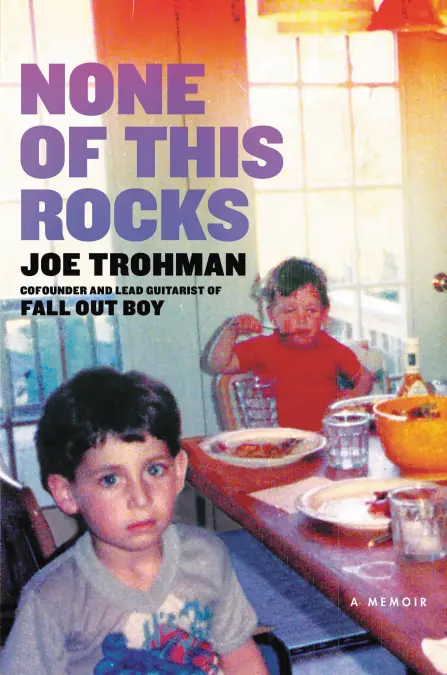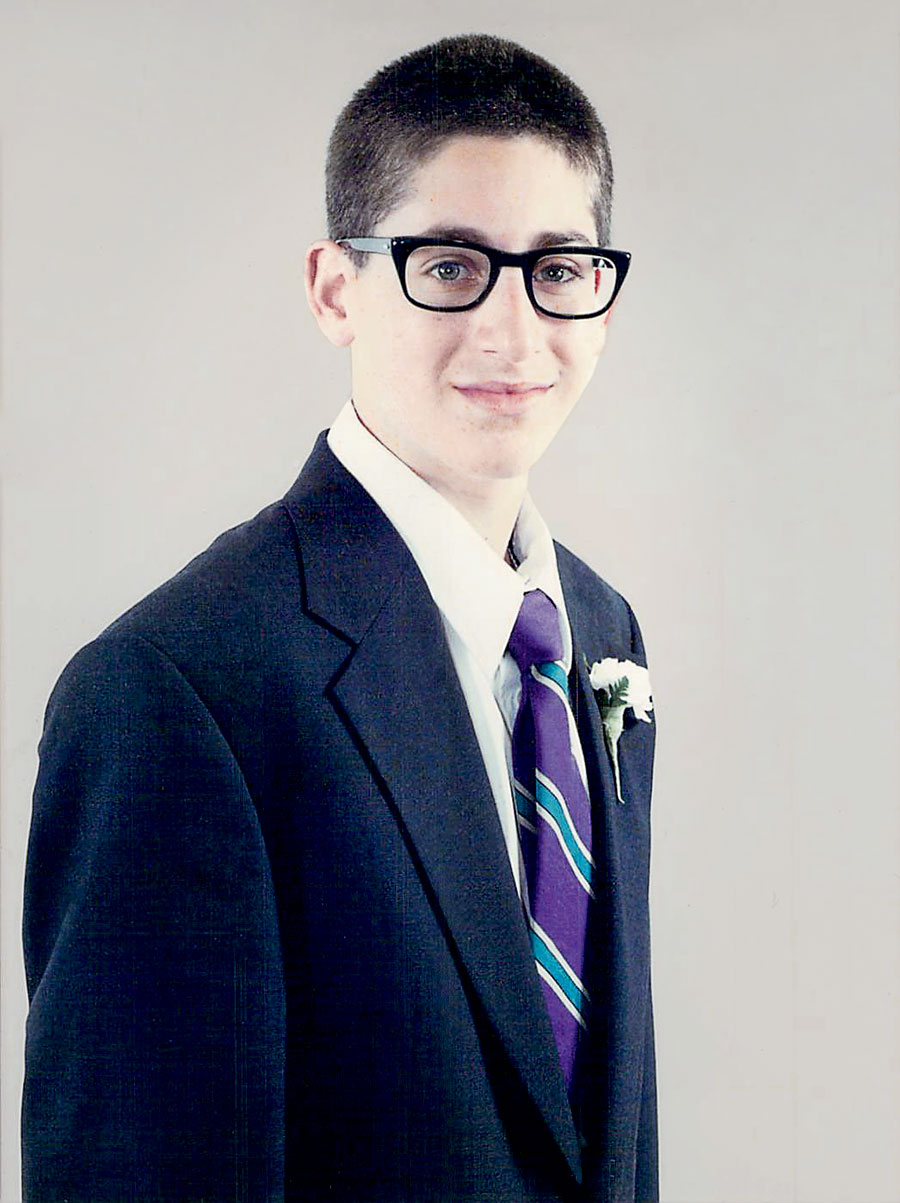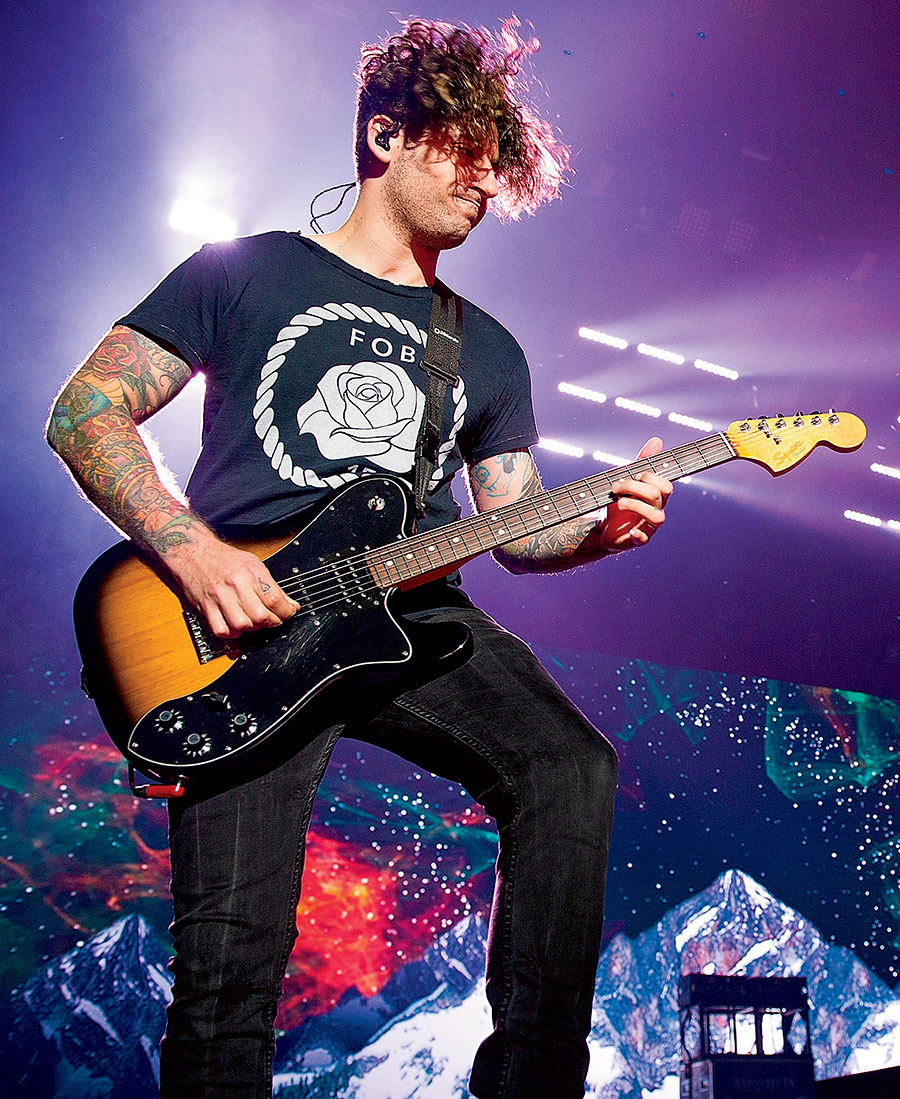It took me less than a week to realize that Winnetka, where my family moved when I was in sixth grade, was a significant upgrade from small-town Ohio. We now lived a stone’s throw from a real, major city, a place with no shortage of culture. And for the first time in my life, I was surrounded by other Jews. No one wanted to fart on me while proclaiming, “Gas chamber!”
For one hot minute I was not an outcast but an interesting curiosity: the new kid. Was he cool? Was he smart? Was he suave? Was he good at rollerblading? I was none of these, but I tried to live in this moment of pseudo-popularity for as long as it would last. Girls even approached me. Real-life girls! Now, this was frightening because I feared the opposite sex greatly. When they tried to talk to me, I would have an internal parts breakdown, unable to compute the complex theories of “flirt,” “talk,” or “Just say something, man!” So I stuttered my way toward week two of middle school, organically shifting from intriguing and potentially kissable to fully weird and ignorable. With the “new kid” sheen dulled and no friends to count, I fell back on the only support system I had: punk rock.
By sophomore year of high school, I had become accustomed to the North Shore brats. Sure, some dabbled in punk, but they preferred to retreat to their parents’ quasi mansions to throw pseudoparties with other brats, less interested in the Vandals and more interested in knowing where the vodka was being kept. I had the “pleasure” of starting my first band with some of these moonlighters, a hardcore group called Voices Still Heard — a generic name with zero meaning.

We were not great. I know I was not great. We recorded a demo tape, something I have intentionally lost and hope to never recover. Outside of making abysmal music, we mostly listened to Hatebreed, a Connecticut hardcore band that had recently released what would become a classic album, Satisfaction Is the Death of Desire. It was clear that if this was the new standard, it might be better if we just stopped doing whatever it was we thought we were doing. Better for ourselves. Better for the world.
I realized it was futile to think I could make any headway in punk or hardcore on the North Shore. While my family had eked our way from a staunchly middle-class lifestyle to this glossier upper-middle class, I could not identify with the type of überwealth these rich kids dragged along everywhere they went, like specters rattling their chains of affluence in my face. I began to see the North Shore and rural Ohio as two sides of the same homogenous, boring coin, full of people too self-involved and uninterested in building a broader community. But this time, I had options. I had Chicago.
To me, the Fireside Bowl was Chicago’s CBGB, our quintessential, ramshackle punk venue that hosted performances by some of the most influential artists of the genre. The Fireside was a dilapidated bowling alley that at the time was not functioning primarily as a bowling alley. The derelict space held around 500 people, meaning that by today’s standards, it probably shouldn’t hold more than 50 safely. This venue was where all the best punk and hardcore bands would play — Dillinger Four, Refused, Buried Alive, Converge, Cave In … I can’t keep count of all the amazing shows I saw during the Fireside’s tenure.
The moment I turned 15, I began to seek out shows in the city. And somehow, I gained my parents’ trust, just enough that they would allow me to traverse Chicago’s public transit on my own. Keep in mind that at that time, around 2000, the area in Logan Square surrounding the Fireside Bowl was not yet the yuppie, button-down belt it is today, as it was overrun with gangs and violence. It’s not that my parents didn’t know that was the case, but to what extent? Yet they clearly felt I could handle myself. Part of me looks back and thinks, Maybe that wasn’t very responsible? But the other part is sincerely grateful for the trust they bestowed on me.
My first show at the Bowl, I remember walking past a green sedan parked outside. I don’t even recall who I saw play that night, but I know I had a blast at the gig. Then, postshow, I exited the venue to see that the same green sedan also had a blast — it had been firebombed. I made sure to hide that tidbit from my parents.

Undeterred, I spent as much time as possible there, or wherever else shows were happening around Chicagoland. During the day, I’d treat my time in high school as work; I’d clock in and clock out, making little eye contact, keeping my head down. At night, I’d take the train into the city. And while I had an impossible time finding one friend at school, I ended up making dozens at these shows. Most were older than me; like big brothers and sisters, they took me under their wing, never treated me as subordinate, guided me through their world, and allowed me to be a part of what was ultimately a very encouraging environment. Sure, hardcore shows are full of violence. But it was a mutual violence. We beat the shit out of each other in the pit, then hugged it out afterward.
While I never had aspirations to become some chest-puffing famous rock ’n’ rollsman, I was dead set on becoming further entrenched in the Chicago hardcore scene, by means of either starting a band, a good one this time, or joining one. Even though I put local bands like Extinction, Racetraitor (an anti–white nationalism metalcore band that informed many of my left-leaning social politics), and the Killing Tree on pedestals, the people in them were down-to-earth, regular guys who became my mentors. That was one of the most extraordinary elements of that scene: Everyone was surprisingly approachable.
So I hung around, hoping to eventually sneak my way into one of these bands. But as punk and hardcore groups are wont to do, all quickly broke up almost as soon as they started. There was no need to fret, as the guys would always form new bands. And it was then, while the Pangaea that was Chicago hardcore broke apart and resituated itself into yet another formation, that I began to situate myself into a friendship with someone I’d end up spending the rest of my life with: Pete Wentz.
Pete had been in both Extinction and Racetraitor, and to a kid like me, he was Chicago hardcore royalty, a term so heavily ridiculous to scrawl out that I may have given myself a hernia in doing so. Yet it felt true; I looked up to Pete. Many did. And right as he and I were becoming fast friends, he had started a new band, Arma Angelus. I remember getting their demo and placing the CD into my boombox. The music that blared out of the tiny speakers was reminiscent of one of my favorite groups, Carcass, the English band whose ’93 album, Heartwork, is undoubtedly one of the best metal records ever made. So parroting Carcass riffs made Arma Angelus my new second favorite band.
As a superfan (I was insultingly referred to as “No. 1 Fan” for a spell), I would go to every Arma performance I could. I never assumed this would amount to anything more than the sheer pleasure of getting to see those guys play show after crushing show. About a year or two into the band’s existence, they made their first full-length album, Where Sleeplessness Is Rest From Nightmares. To support it, they set up a tour of the Southern U.S. and the East Coast.
But right before they were about to set out, Arma’s bassist, Chris Gutierrez, couldn’t get time off from his job. (The same Chris would later get immortalized in the Fall Out Boy song “Grenade Jumper.”) I don’t fully understand how what came next transpired, but Pete asked me to fill in. Now, consider a few things: (a) I’d never been in a real band, (b) Pete knew I played guitar but had never heard me play, (c) a guitar is not a bass, and (d) I was five years his, and the rest of the band’s, junior — I was but a high school freshman. I got past points a, b, and c by simply feigning both confidence and ability. Point d, the age, that was tough. But considering my parents were letting me freewheel around Chicago unsupervised, I figured I’d at least ask them about this whole “letting me traverse the country with a bunch of dirty 20-something strange dudes” thing.
They said no. And then I told Pete, “They said no.” Now, I do not know why Pete went out of his way to make the next thing happen. He must’ve liked me enough, or there was no one else available. Pete went to my parents’ house, sat down with them, and Svengalied my folks into allowing me to go on tour with Arma Angelus as their temp bassist. To this day, Pete is still one of the most charismatic, convincing talkers I’ve known.
A week later, I was to go on the first tour of my life with a group of unencumbered adults. We were to show up to basements, VFWs, and other shoddy venues in hopes that our shows were booked. I would also go through the worst hazing of my life, a true induction to the nitty-gritty of the touring world. While that sounds horrible, and sometimes was, it was one of the most transformative moments of my life. It forced me to grow rapidly from a greasy, pimply, sheltered, naive child into a hardened, acne-scarred, slightly older child with a sheen of cool indifference. And even greater than that would be what would eventually come from the haphazard tour. As I mentioned earlier, local punk and hardcore bands don’t last long. And soon after that tour, as Arma Angelus started winding down, or breaking down, Pete and I began discussing a newer, differenter band.



